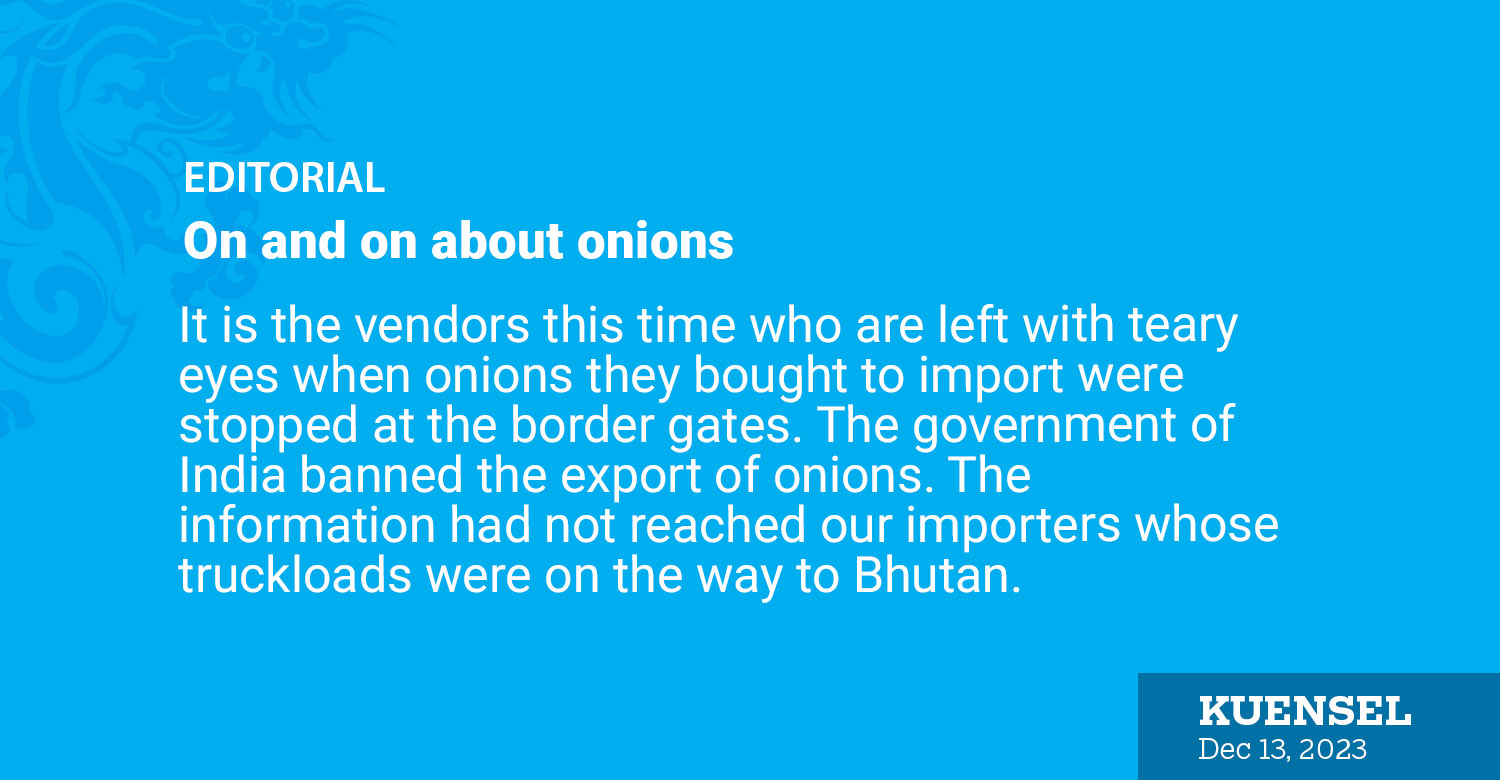It is the vendors this time who are left with teary eyes when onions they bought to import were stopped at the border gates. The government of India banned the export of onions. The information had not reached our importers whose truckloads were on the way to Bhutan.
The ban until March 31 was announced by the Directorate General of Foreign Trade (DGFT) on Thursday, December 7. The ripple effect is already being felt with onion price doubling overnight. Prices of imported essential vegetables rise and fall depending on external factors. Ban on export is one and as an import dependent country, all we can do is grumble and pay if we cannot cut down on consumption.
Vendors or importers whose consignments were stopped or seized are wondering, not necessarily blaming the authorities for the lack of timely information. While it would have helped them plan their import, it would not bring down the price or meet the demands. We could pass it on as not having a government (as it is the election period), but important information, especially related to the ban on essential food items needs to be shared on real time.
Such lack of communication creates misunderstanding. On Saturday, a “jumbo” truck full of onions was being unloaded at Chubachhu, above the Centenary Farmers’ Market, becoming the eyesore of other vendors. Some had become suspicious of a few getting prior information on the ban. Retailers at the same market didn’t know the reason for the hike, but started charging the new price even for the old stock they hoarded.
It is said that shortage or price of onions can decide an election in India, from where we import all our onions. The shortage or price may not determine the general election results, but it affects us all. Bhutan imports nearly all the onions, 96 percent as of 2022, from India, importing around 6,330 metric tonnes (MT) worth Nu 185 million. What we cultivate, around 264.8MT is what we say (pinch of) salt in the curry. There is a huge demand going by the import statistics.
While many could rely on the leafy or spring onions as an alternative, the demand for onions has changed. Hundreds of eateries, small restaurants and all the star-rated hotels need onions. Onion is called the unsung hero of seasoning because it is the most commonly used ingredient in cooking.
Onion, ironically, was identified as a potential cash crop for our farmers. There is land and the climatic conditions favour us when there is shortage in India. The government has identified 15,942 acres of fallow land that is fit for farming. Farmers are still hesitant to grow onions given its long cultivation period and harvest coinciding with monsoon. That does not mean we should stop exploring the opportunity. With the right technology and interventions, we could at least produce to meet the local demands if not for export.


